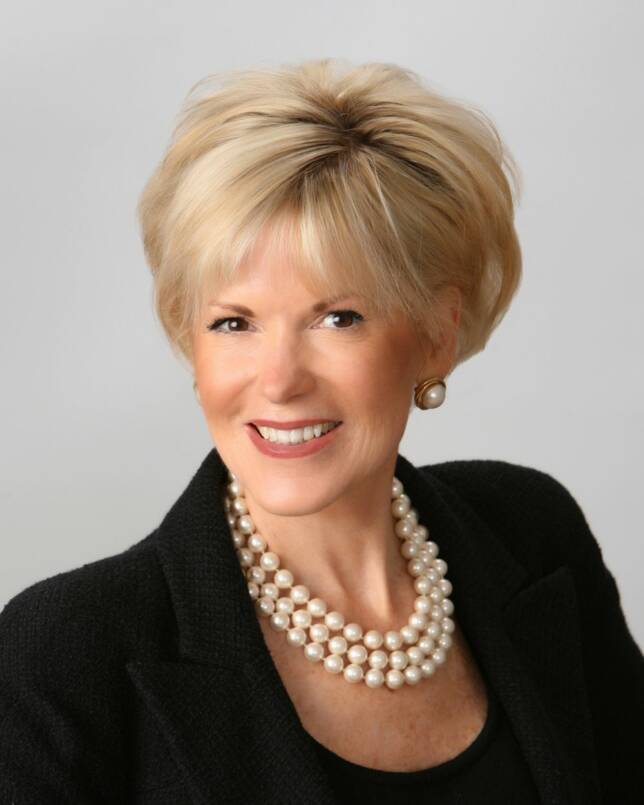 | ||||||
Protocol Consultants International
Media Update - U.S. News & World Report
Professional Presence, Corporate Training and Development
Consulting and Protocol Certification
- U.S. News & World Report - January 22, 2008 issue
 [Back to Donut Media]
[Back to Donut Media]
Alpha Consumer
"Tipping, Part 2: Answers for Readers"
By Kimberly Palmer
Posted 01/22/2008
My conversation on tipping with protocol consultant Judith Bowman generated so many questions from readers that I asked Bowman to tackle the subject again. Readers wanted to know what to do when they traveled, why they had to pay a 20 percent tip on meals that were already too expensive, and what to say when they weren't thanked properly for providing a tip. (Not surprisingly, the short answer to that last one is "nothing.")
I also received a plea from a reader who works in a large, family-owned restaurant in Delaware. She says most customers tip only 10 percent, which places a strain on the wait staff, who typically earn only around $2.35 an hour before tips, which are also shared with busboys. She wanted to remind others of the importance of tipping—and tipping well.
Here are Bowman's responses to readers' questions:
Why should tipping rates keep going up? As the price of items increases, so do the tips. Why should I have to pay an additional 5 to 10 percent today, when prices are already higher?
I agree with this conceptually. However, the cost of living has gone up for people in the service industry, too. If you want to "play," be prepared to "pay," especially for exceptional service and personalized attention. Particularly when traveling, wait staff and service personnel are our only friends. They are the individuals who can help ensure a positive, memorable travel experience—or not. Whenever in doubt, always tip up, regardless of where you are, unless you know this gesture would be considered offensive in that culture.
How should you respond when someone does not thank you for their tip?
Any service professional who does not say "thank you" for their gratuity is doing themselves a disservice. However, your saying anything derogatory or inflammatory would be counterproductive. Rather, I would tuck this information away and, should you decide to return to this establishment, ask for a different server.
What are the guidelines for tipping in Europe and Asia?
Europe: When it comes to tipping, Europeans are not as generous as Americans. In Europe, 10 to 15 percent is a good tip, and 5 to 10 percent is the norm. However, service staff in many countries appreciate, if not expect, some sort of acknowledgement of thanks in the monetary form. Always check the bottom [of the menu to see] if the service charge is included.
Asia: Asia has many different cultures, and tipping varies. Tipping too much or too little can be offensive, so be sure to research your country in advance. Some examples include:
- Thailand: Generally, the more westernized establishments expect a gratuity, while lower-end restaurants do not. Some higher-end places will add a 10 percent service charge to the bill.
- Hong Kong: Tipping is absolutely obligatory in this money-oriented metropolis. Even restrooms in hotels have tip dishes. In restaurants, a 10 percent service charge is often added, but this usually goes to the owner, not the wait staff. If service is good, add another 10 percent.
- South Korea: Tipping has not traditionally been part of this culture, although now a 10 percent tip at higher-end restaurants is appropriate. Taxi drivers do not expect a tip
- Beijing: In the past, tipping in Beijing was taboo as this was considered insulting to the culture of hospitality. Instead, visitors were told to bring small gifts, such as bookmarkers or key chains for taxi drivers and hotel staff. Today, Beijing is quickly becoming westernized, and not receiving a tip, particularly for the younger staff, will be insulting. Around 10 percent is appropriate.
- Singapore: The government actually banned tipping at Changi Airport and discourages it elsewhere. Hotel staff are the one exception and should be tipped around $1 for baggage service.
How much should you tip skycaps or porters at airports and doormen at hotels?
The skycap at the airport typically gets $2 to $3 per bag. If you are running late and they are of particular assistance, then add $1 to $2 per bag. A flat $20 goes a long way in saying "thank you." When in doubt, always tip up. As for doormen at hotels, tip anywhere from $2 to $5. Always tip up, and you are sure to be remembered among all employees, as they do talk.
What are the rules for tipping postal workers? I thought they were not allowed to receive cash tips.
Postal workers cannot receive any more than $20 in cash, which is an appropriate tip during the holidays.
What about cab drivers?
Generally speaking, cab drivers receive 18 to 20 percent of the fare. Should they have a bad attitude, are rude, or have a dirty cab, I would tip 10 percent or nothing at all. However, if this is the case, I would absolutely tell them why.
And the hairstylist?
Hairstylists should receive an 18 to 20 percent tip unless they are the owner, in which case, they should not accept tips.
This story appeared in the January 22, 2008 online edition of U.S. New & World Report.
Tel: 508-888-7800 E-mail: Judith Bowman
WANTED:
Entrepreneurs!
Tap into the fast-growing Protocol Industry through our proven, established Protocol Certification program and, coaching and guidance from an
All-Star cast of business practitioners who have tested and refined the business model.
Click here to learn more about

